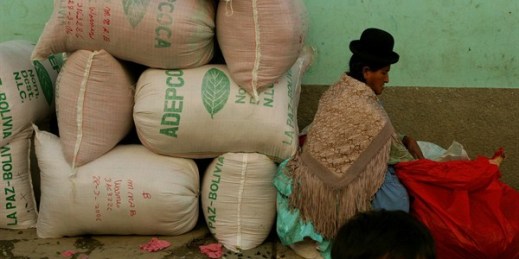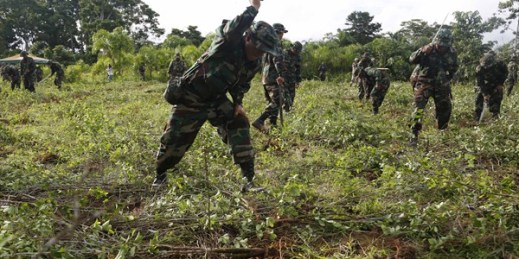
Just as the expulsion of the U.S. Drug Enforcement Administration removed a check on drug-related corruption at the highest levels of Bolivia’s government, it has also created space for an alarming increase in lower-level illicit activity. Nevertheless, President Evo Morales maintains he has the market for cocaine in Bolivia under control.On a Thursday evening this past February, two Bolivian men met at a public plaza in the country’s capital, La Paz, to discuss a major cocaine sale. Though they had been texting back and forth all week, each was wary of the other. One of the men, Luis, was an […]

